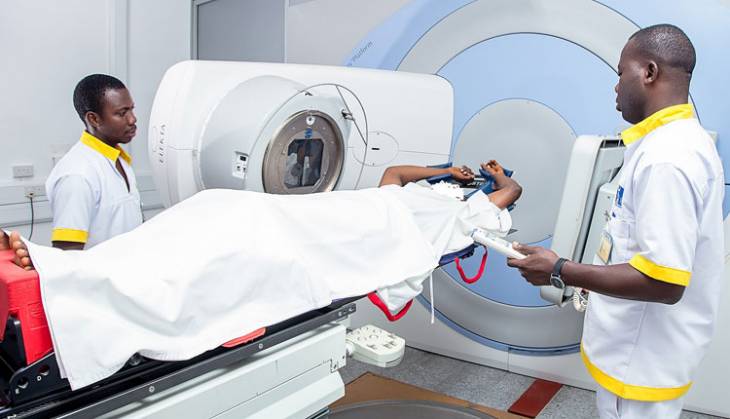Facts about cervical cancer and HPV vaccine

To counter the scourge that is now stalking women locally and globally, the Health ministry will tomorrow roll out the Human Papillomavirus (HPV) vaccination drive in a bid to tame the killer disease threat. Milliam Murigi delves into details on the prevention approaches and available remedies…
Shocking statistics
Cancer of the Cervix, which forms the lower part of the uterus, is the leading cause of cancer related deaths among women in Kenya.
HPV linked to cervical cancer
Human papillomavirus (HPV) is a common sexually transmitted disease with an estimated 80 per cent of sexually active people contracting it at some point in their lives. There are over 100 varieties of HPV, more than 40 of which are passed through sexual contact and can affect your genitals, mouth, or throat. According to World Health Organisation, virtually all cervical cancer cases (99 per cent) are linked to genital infection with HPV and it is the most common viral infection of the reproductive tract.
No symptoms
Typically, cervical cancer develops slowly over a long period of time (10-15 years). The HPV can live in the body for many years without causing any health complications. Many people, in fact, have no signs of infection and may only become aware of the condition if they have an abnormal pap smear result. But, even for people who do have symptoms, they are often either overlooked or misunderstood. Available statistics show that more than 20 million people are currently infected with HPV worldwide and another 6.2 million will contract the virus each year.
Types
The main types of cervical cancer are:
Squamous cell carcinoma begins in the thin, flat cells (squamous cells) lining the outer part of the cervix, which projects into the vagina. Most cervical cancers are squamous cell carcinomas.
Adenocarcinoma begins in the column-shaped glandular cells that line the cervical canal.
Vaccine to be offered free of charge
The Government, with the support of the Gavi Alliance and Partners, plans to introduce the HPV vaccine into the routine immunisation schedule this year.
Targeted group
The vaccine is administered to young girls preferably before they have made their sexual debut to arm their bodies with antibodies to fight off the virus. The vaccine will be offered nationally alongside other routine infant vaccines through an existing network of over 9,000 public, private, faith based and non governmental organisation free of charge, to 800,000 girls, who are currently 10 years old and subsequently to all girls as they turn 10 years old in future. For maximum protection, all girls aged 10 years must receive two doses of the vaccine, six months apart.
No shortage of vaccine
Already, the country has in place more than 1.3 million doses of the HPV vaccine against a target of 800,000 girls, for this year 2019. Vaccination cards will be given to those who receive the vaccine. This would be implemented within the framework of achieving Universal Health Coverage (UHC), as part of the Preventive and Promotive Healthcare component.
Vaccine is safe
The cervical cancer vaccine is safe and effective and has been evaluated and licensed for use in the country. It is in use in routine immunisation programmes of more than 115 countries worldwide.
Pilot project successful
The HPV vaccine pilot vaccination in Kenya was carried between 2013 and 2015 in Kitui covering 22,500 children of ages nine to 11 resulting in 95 percent evidence-based success.
Other ways of preventing cervical cancer
Since HPV is the known cause of cervical cancer, the simplest way to averting the disease is avoiding getting the infection by the virus in the first place. Exercising caution by refraining from unsafe sex and limiting the number of sexual partners can lower the chances of contracting the virus and ultimately developing cervical cancer. If one has more sexual partners, they have higher exposure to HPV— having multiple sexual partners exposes one to different strains of HPV. When detected early, HPV can be treated and prevent any serious health complications.












